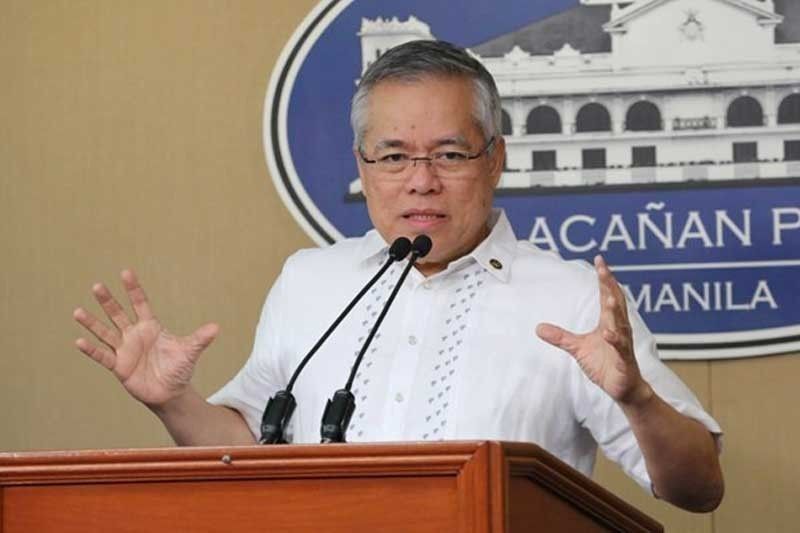CREATE to end investor uncertainty

MANILA, Philippines — A bill that seeks to cut the corporate income tax (CIT) rate and rationalize incentives recently approved by the Senate is expected to put an end to investor uncertainty and is seen by the Department of Trade and Industry (DTI) to allow the country to attract more investments.
Business groups welcome the end to uncertainty on the incentives regime, but there are concerns on the required approval by the Fiscal Incentives Review Board (FIRB) for certain projects, and renewal of incentives after the transition period.
Trade Secretary Ramon Lopez said in a Viber message the Senate’s approval on third and final reading of the proposed Corporate Recovery and Tax Incentives for Enterprises (CREATE) Act comes at a perfect time as the government wants to attract investments to enable the economy to bounce back from the pandemic.
“Just what we need during this pandemic to restimulate the economy as this will attract more investors both local and foreign. CREATE offers clearer, stable and more attractive investment climate, complementing our recently signed RCEP (Regional Comprehensive Economic Partnership) and aggressive infrastructure development program,” he said.
Last Thursday, the Senate approved on third and final reading the much awaited CREATE bill, the second package of the administration’s comprehensive tax reform program and was first known as the Tax Reform for Attracting Better and High Quality Opportunities and then later renamed as the Corporate Income Tax and Incentives Rationalization Act.
The CREATE bill aims to lower the CIT to 25 percent from the current 30 percent, which is considered to be the highest in Southeast Asia, and reduce it further to reach 20 percent by 2027.
For businesses with an annual income lower than P5 million, the CIT will immediately be trimmed to 20 percent to help micro, small and medium enterprises (MSMEs) challenged by the pandemic.
Both exporters and domestic industries can avail of four to seven years of income tax holiday (ITH) under the bill.
After using the ITH, exporters may enjoy the special CIT of five percent gross income earned (GIE) or enhanced deductions for 10 years, while domestic enterprises can avail of enhanced deductions for 10 years.
Those already availing of the five percent GIE will be given a 10-year transition period.
Also part of the bill is the required approval by the FIRB composed of the Department of Finance as chair, the DTI as co-chair and representatives from the Office of the President, Department of Budget Management and the National Economic and Development Authority as members, of incentives for projects with investments over P1 billion.
Even with this requirement, Sen. Pia Cayetano who sponsored the bill said investment promotion agencies would continue to perform their function of promoting investments, receiving and processing applications, and recommending projects for approval to the FIRB.
The House of Representatives approved its version last year and if it chooses to adopt the Senate’s approved bill, the CREATE would just need President Duterte’s signature to become law.
“The lower CIT tax rates would be a big boost especially to MSMEs plus other tax incentives and longer transition period for new and current investors,” Lopez said.
When CREATE is signed into law, he said the measure would complement the government’s renewed push for the Philippines as a viable destination for investments.
The DTI formally launched its new marketing campaign Make It Happen in the Philippines last Tuesday which identified the automotive, aerospace, electronics, information technology - business process management and copper or nickel as priority sectors where it wants to attract foreign investments.
American Chamber of Commerce of the Philippines advisor John Forbes said in a text message the group welcomes the end to uncertainty with the Senate’s approval of the bill.
“The Senate bill will make the country somewhat more competitive for foreign investment with the reduced CIT. The transition provisions for current export firms are welcome. The incentives for new investors are likewise welcome,” he said.
He said the group has concerns, however, on the required second level approval for projects above P1 billion noting that it “could cause uncertainty since investors are accustomed to Board of Investments, Philippine Economic Zone Authority, Clark, Subic processing and approving their applications with red carpet efficiency and have no experience with the additional layer of bureaucracy.”
Semiconductor and Electronics Industries in the Philippines Foundation Inc. president Dan Lachica said that while there would be a 10-year transition period for those presently availing of the five percent GIE, there is uncertainty on the renewal of incentives after that.
“There is no assurance that we will attract significant expansions and new FDIs (foreign direct investments) even during the 10-year transition and beyond. There is no guarantee also of continued employment if there are no expansions with new products,” he said.
Philippine Ecozones Association president Francisco Zaldarriaga said the group is still waiting for the final text of the Senate’s approved bill, but noted the uncertainty over the planned changes in the incentive system is over.
He said the group was of the view no change should be made to the incentives regime given the pandemic.
- Latest
- Trending


























